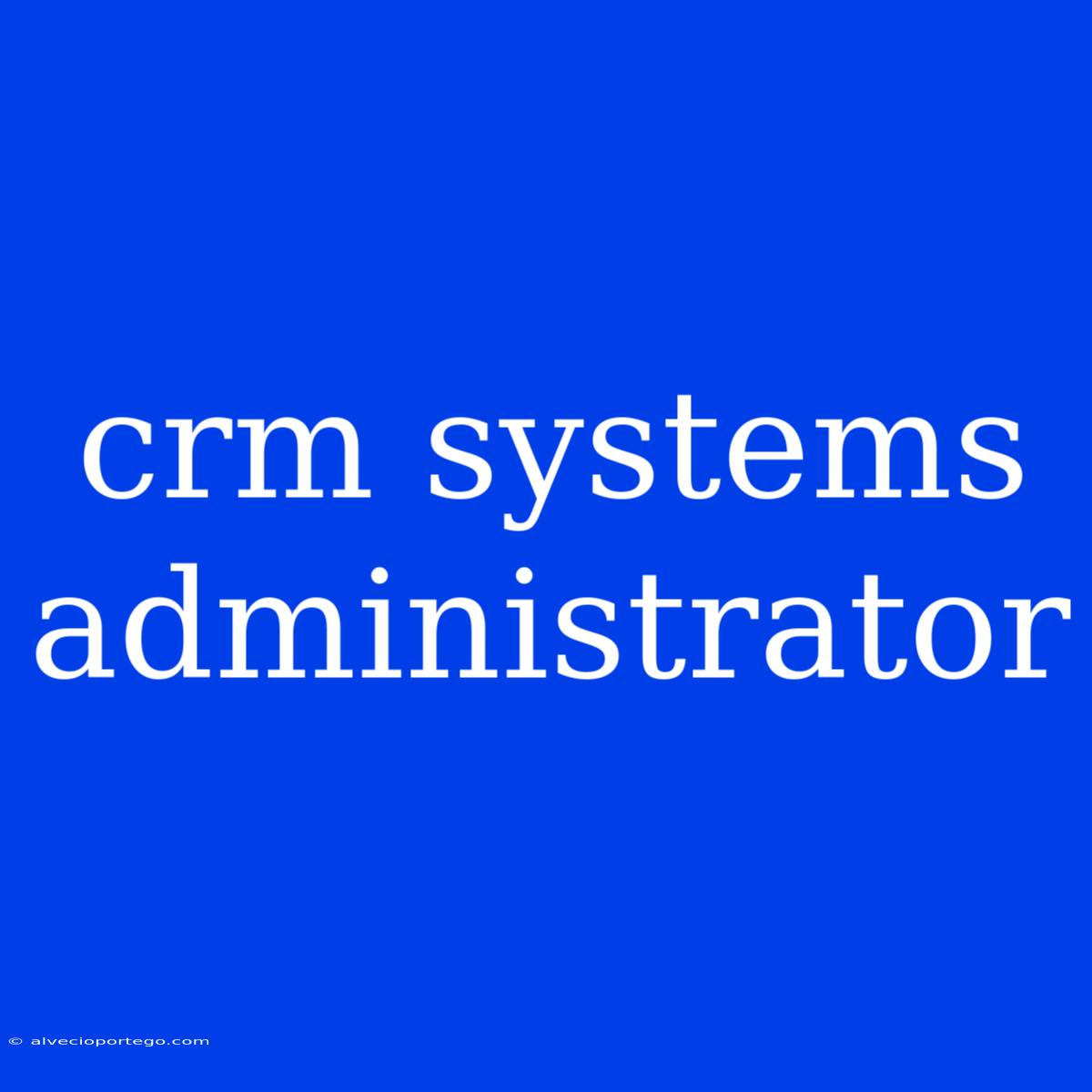The CRM Systems Administrator: A Vital Role in Modern Business
In today's data-driven world, Customer Relationship Management (CRM) systems are essential for businesses to thrive. These systems help companies manage customer interactions, track sales pipelines, and analyze customer data. But behind the scenes, ensuring the smooth operation and optimal performance of these critical systems is the CRM Systems Administrator.
What Does a CRM Systems Administrator Do?
A CRM Systems Administrator is responsible for the implementation, configuration, maintenance, and optimization of CRM software. This involves a wide range of tasks, including:
- Installing and configuring CRM software: Ensuring the system is properly set up and integrated with other business applications.
- Managing user accounts and permissions: Controlling access levels and ensuring data security.
- Troubleshooting and resolving technical issues: Identifying and fixing any problems that arise with the system, ensuring smooth operation.
- Developing and implementing training materials: Educating users on how to effectively utilize the CRM software.
- Performing regular backups and system updates: Protecting data and ensuring the system remains up-to-date and secure.
- Monitoring system performance and identifying areas for improvement: Analyzing system usage and optimizing performance for maximum efficiency.
- Staying up-to-date on the latest CRM technologies and trends: Continuously learning and adapting to evolving technology.
Skills and Qualifications for a CRM Systems Administrator
A successful CRM Systems Administrator needs a combination of technical expertise and soft skills. Key qualifications include:
- Strong technical skills: Proficiency in database management, networking, and system administration.
- CRM software knowledge: Expertise in popular CRM systems like Salesforce, Microsoft Dynamics, and HubSpot.
- Problem-solving and analytical skills: Ability to identify and resolve complex technical issues.
- Communication and interpersonal skills: Effectively communicating with users and explaining technical concepts.
- Organizational and time management skills: Prioritizing tasks and managing multiple projects efficiently.
Why Is a CRM Systems Administrator Important?
A skilled CRM Systems Administrator is vital for businesses to get the most out of their CRM systems. They ensure:
- Smooth operation and reliability: The CRM system functions seamlessly without technical glitches.
- Data security and integrity: Data is protected and maintained accurately.
- Optimized performance: The system performs efficiently and effectively, maximizing ROI.
- User satisfaction: Users are trained and supported, leading to increased adoption and engagement.
Career Paths for CRM Systems Administrators
A CRM Systems Administrator can pursue various career paths, including:
- CRM Specialist: Focusing on specific aspects of CRM implementation and configuration.
- CRM Consultant: Providing expertise and guidance to businesses on CRM strategy and implementation.
- IT Project Manager: Leading and managing technology-related projects.
- Data Analyst: Analyzing CRM data to identify trends and insights.
In conclusion, the CRM Systems Administrator plays a critical role in ensuring the success of modern businesses. They are the unsung heroes behind the scenes, keeping the vital customer relationship engine running smoothly and efficiently.

